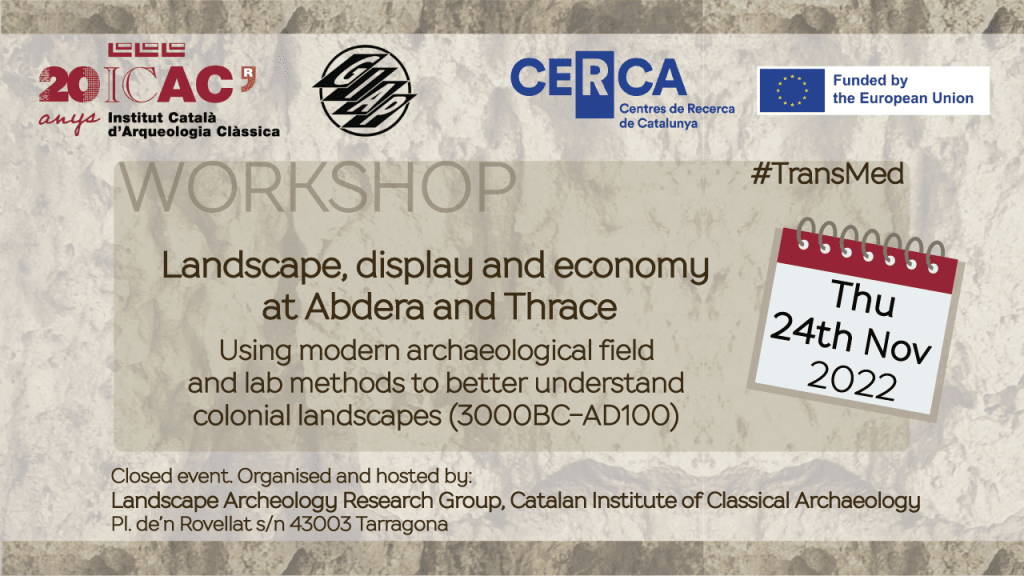Tarragona (plaça d'en Rovellat, s/n)
This Thursday, 24th November 2022, ICAC will be hosting a GIAP International Workshop in the context of the recently finalised Marie Skłodowska-Curie fellowship of Dr. Merkouris Georgiadis:
International Workshop «Landscape, display, and economy: using modern archaeological field and lab methods to better understand ancient economies (from 3000BC to AD100)».
This workshop aims to bring together researchers working in Thrace to discuss the current state and future archaeological developments in the area with a particular emphasis on its colonial productive landscape within and around the city of Adbera.
Most work resulting in economic analysis takes place on site. Techniques such as zooarchaeology archaeobotany, and material culture studies from multiple sites are used to analyse different aspect of the economy, consumption, trade, commerce, and production. Different methods such as excavations and systematic surveys provide new evidence for the local economy in a given period.
However, these studies rarely take into account the areas where the actual production and display take place. Equally, landscape studies do not count within its main topics the study of productive and display landscapes, even those subfields such as the study of field systems rarely delve in the actual products being developed or how these contribute to the economy of the area. Funerary landscapes are also often overlooked in favour of the material culture recovered within burial grounds rather than the sites themselves and their impact.
This workshop aims to start bridging this gap by defining the study of productive landscapes and collecting a series of case-studies in which the analysis of productive landscapes is addressed.
Keywords: Colonial Landscapes; Industrial landscapes; Agropastoral landscapes; Burials and display of wealth in funerary landscapes; Consumption landscapes
Contributions:
1. Arnau Garcia-Molsosa (Catalan Institute of Classical Archaeology)
2. Merkouris Georgiadis (Catalan Institute of Classical Archaeology & National and Kapodistrian Uni. of Athens)
3. Constantina Kallintzi (Ephorate of Antiquities of Xanthi)
4. Eurydice Kefalidou (National & Kapodistrian University of Athens)
5. Alfredo Mayoral Pascual (Catalan Institute of Classical Archaeology)
6. Hèctor A. Orengo (Catalan Institute of Classical Archaeology)
7. Domna Terzopoulou (Ephorate of Antiquities of Evros)

Funding: Research project TransMed — H2020-MSCA-IF-2018-839650





